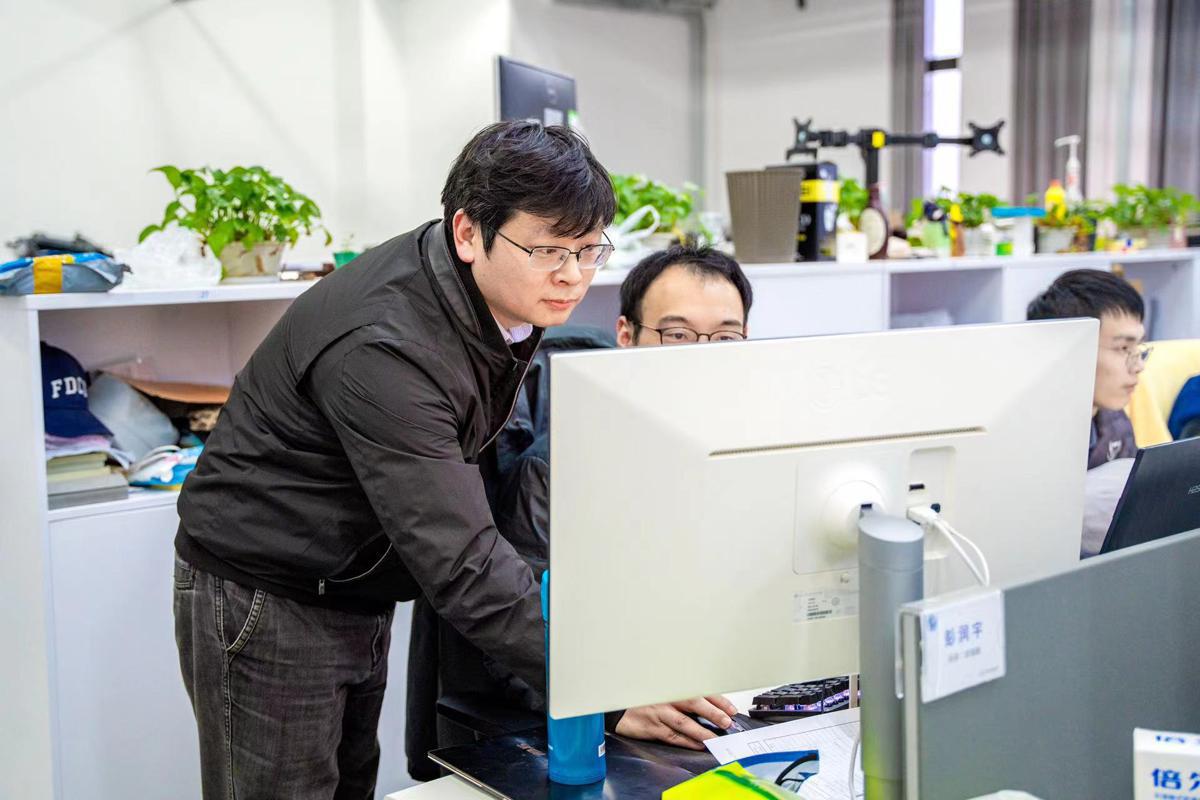Shanghai delegates call for more basic research


Continued efforts should be made to invest more in basic research, which serves as the basis for advancing innovation and technology, and high-quality economic growth, according to the Shanghai delegates attending the two sessions in Beijing.
The sentiments resonate well with this year's Government Work Report released just over a week ago, which said that expenses for China's basic research have doubled in the past five years, serving as a major economic growth engine.
The country's overall investment in research and development has increased from 2.1 percent to over 2.5 percent over the past five years.
Jin Li, a deputy to the National People's Congress and president of Fudan University, wrote in his proposal submitted this year that the overall effectiveness of China's basic research should be improved.
As Jin understands it, China faces an insufficiency in basic research, with core scientific problems still needing to be addressed. Some application-oriented basic research has not really focused on application demand, leaving practical problems unsolved. All these have resulted in bottleneck problems in the integrated circuit and artificial intelligence industries.
"High-level research-focused universities should be the major force, engine and source of basic research. Favorable policies should be directed to teacher evaluation and discipline construction to encourage researchers to invest more in original innovation," he said.
Shanghai should take the lead nationwide in advancing basic research so that it can truly grow into a scientific and technological innovation center with global influence, he added.
In October 2021, the Shanghai government released a guideline to advance the high-quality development of basic research. By 2025, the city's investment in basic research should account for 12 percent of its total R&D expenditure. It should have achieved major original results in frontier areas and addressed major scientific problems corresponding to China's strategic demand by that time, the guideline said.
Situ Guohai, a member of the 14th National Committee of the Chinese People's Political Consultative Conference and director of the Laboratory of Information Optics and Optoelectronic Technology from the Shanghai Institute of Optics and Fine Mechanics at the Chinese Academy of Sciences, suggested in his proposal that a trading platform where technology can be transformed into market value should be built.
A market system including industry professionals should also be established so companies can put forward their needs to universities and research institutes more precisely.
"Companies should participate in the whole process of innovation. It is when research and industries are deeply integrated that scientific achievements can be transformed more efficiently," he said.
Yin Jie, an NPC deputy and executive vice-president of ShanghaiTech University, suggested in his proposal the establishment of a "double mentor team", with university teachers and company experts jointly developing practical courses.
"Novel technologies, new production processes and advanced industrial elements should be incorporated into teaching standards and content in a timely manner. This will facilitate the connection and transition for subsequent R&D within companies," he said.
Bigger platforms are necessary to advance the country's R&D.
Cao Amin, a member of the 14th CPPCC National Committee and vice-president of the Shanghai Academy of Science and Technology, said that a regional innovation consortium should be built in the Yangtze River Delta at a faster pace so that joint efforts can be made to focus on large projects and realize key technology breakthroughs.
- China's CR450: A new era of high-speed rail at 400 km/h
- TAN SUO SAN HAO to pioneer future of deep-sea exploration
- Xi's discourses on Chinese modernization published in Japanese
- Officials summoned over alleged garbage bin food served to students
- Caring hearts help to enhance quality special education
- Xi sends condolences to South Korean acting president over plane crash




































